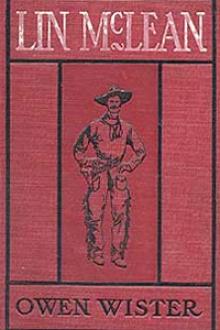The Girl from Sunset Ranch, AMY BELL MARLOWE [mini ebook reader txt] 📗

- Author: AMY BELL MARLOWE
Book online «The Girl from Sunset Ranch, AMY BELL MARLOWE [mini ebook reader txt] 📗». Author AMY BELL MARLOWE
"Is that what you'd like to do--keep a millinery shop?" asked Helen.
"Wouldn't I--just?" gasped Sadie. "Why, Helen--I dream about it nights!"
Helen became suddenly interested. "Would a little shop pay, Sadie? Could you earn your living in a little shop of your own--say, right around here somewhere?"
"Huh! I've had me eye on a place for months. But it ain't no use. You got to put up for the rent, and the wholesalers ain't goin' to let a girl like me have stock on credit. And there's the fixtures--Aw, well, what's the use? It's only a dream."
Helen was determined it should not remain "only a dream." But she said nothing further.
CHAPTER XXIV (THE HAT SHOP)
"Them folks you're living with must have had a change of heart, Helen," said Sadie Goronsky, as the two girls sallied forth--Sadie with her new hat set jauntily on her sleek head.
"Why do you say that?"
"If they are willing to spend fourteen dollars on old Lurcher's eyes."
"Oh, it isn't a member of my uncle's family who is furnishing the money for this charity," Helen replied. Sadie asked no further questions, fortunately.
It was a very miserable house in which the old man lodged. Helen's heart ached as she beheld the poverty and misery so evident all about her. "Lurcher" lived on the top floor at the back--a squalid, badly-lighted room--and alone.
"But a man with eyes as bad as mine don't really need light, you see, young ladies," he whispered, when Sadie had ushered herself and Helen into the room.
He had tried to keep it neat; but his housekeeping arrangements were most primitive, and cold as the weather had now become, he had no stove save a one-wick oil stove on which he cooked his meals--such as they were.
"You see," Sadie told him, "this is my friend, Helen, and she seen you the other day when you--you lost that dollar, you know."
"Ah, yes, wonderful bright eyes you have, Miss, to find a dollar in the street."
"Ain't they?" cried Sadie, grinning broadly at Helen. "Chee, it ain't everybody that can pick up money in the streets of New York--though we all believed we could before we come over here from Russia. Sure!"
"You see," said Helen, softly, "I had seen you before, Mr.--er--Lurcher. I saw you over on the West Side that morning."
"You saw me over there?" asked the old man, yet still in a very low voice--a sort of a faded-out voice--and he seemed not a little startled. "You saw me over there, Miss? Where did you see me?"
"On--on Bleecker Street," responded Helen, which was quite true. She saw that the man evidently did not wish his visit to Fenwick Grimes to be known. Perhaps he had some unpleasant connection with the money-lender.
"Yes, yes!" said Lurcher, with relief. "I--I come through there frequently. But I have such difficulty in seeing my way about, that I follow a beaten path--yes! a beaten path."
Helen was very curious about the old man's acquaintance with Fenwick Grimes. The more she thought over her own interview with the money-lender and mine-owner, the deeper became her suspicion that her father's one-time partner was an untrustworthy man.
Anybody who seemed to know him better than she did, naturally interested Helen. Dud Stone had promised to find out all about Grimes, and Helen knew that she would wait impatiently for his report.
But she was interested in Lurcher for his own miserable sake, too. He had lived by himself in this wretched lodging for years. How he lived he did not say; but it was evident that his income was both infinitesimal and uncertain.
Nevertheless, he was not a mean-looking man, nor were his garments unclean. They were ragged. He admitted, apologetically, that he could not see to use a needle and so "had sort o' got run down."
"I'll come some day soon and mend you up," promised Helen, when the old man gave her the prescription he had received from the oculist at the Eye and Ear Hospital. "And you shall have these glasses just as soon as the lenses can be ground."
"God bless you, Miss!" said the old man, simply.
He had a quiet, "listening" face, and seldom spoke above a whisper. He was more the shadow of a man than the substance.
"Ain't that a terrible end to look forward to, Helen?" remarked Sadie, seriously, as they descended the stairs to the street. "He ain't got no friends, and no family, and no way to make a decent livin'. They wouldn't have the likes of him around in offices, writin' in books."
"Oh, you mean he is a bookkeeper?" cried Helen.
"Sure, I do. That's a business! My papa is going to be in business for himself again. And so will I--you see! That's the only way to get on, and lay up something for your old age. Work for yourself----"
"In a millinery store; eh?" suggested Helen, smiling.
"That's right!" declared Sadie, boldly.
"Where is the little store you spoke of? Do you suppose you can ever get it, Sadie?"
"Don't! You make me feel bad here," said Sadie, with her hand on her heart. "Say! I just ache to try what I can do makin' lids for the East Side Four Hundred. The wholesale houses let youse come there and work when they're makin' up the season's pattern hats, and then you can get all the new wrinkles. Oh, I wish I was goin' to start next season in me own store instead of pullin' greenies into Papa Yawcob's suit shop," and the East Side girl sighed dolefully.
"Let's go see the shop you want," suggested Helen.
"Oh, dear! It don't do no good," said Sadie. "But I often go out of my way to take a peek at it."
They went a little farther uptown and Helen was shown the tiny little store which Sadie had picked out as just the situation for a millinery shop.
"Ye see, there's other stores all around; but no millinery. Women come here to buy other things, and if I had that little winder full of tasty hats--Chee! wouldn't it pull 'em in?"
They stood there some minutes, while the young East Side girl, so wise in the ways of earning a living, so sharp of apprehension in most things, told her whole heart to the girl who had never had to worry about money matters at all--told it with no suspicion that My Lady Bountiful stood by her side.
She pointed out to Helen just where she would have her little counter, and the glass-fronted wall cases for the trimmed hats, and the deep drawers for "shapes," and the little case in which to show the flowers and buckles, and the chair and table and mirror for the particular customers to sit at while they were being fitted.
"And I'd take that hunchback girl--Rosie Seldt--away from the millinery store on my block--she hates to work on the sidewalk the way they make her--she could help me lots. Rosie is a smart girl with some ideas of her own. And I'd curtain off the end of the store down there for a workroom, and for stock--Chee, but I'd make this place look swell!"
Helen, who had noted the name and address of the rental agent on the card in the window, cut her visit with Sadie short, so afraid was she that she would be tempted to tell her friend of the good fortune that was going to overtake her. For the girl from Sunset Ranch knew just what she was going to do.
Dud Stone had given her the address of the law firm where he was to be found, and the very next morning she went to the offices of Larribee & Polk and saw Dud. In his hands she put a sum of money and told him what she wished done. But when Dud learned that the girl had the better part of eight hundred dollars in cash with her, he took her to a bank and made her open an account at once.
"Where do you think you are--still in the wild and woolly West where pretty near everybody you meet is honest?" demanded Dud. "You ought to be shaken! That money here in the big city is a temptation to half the people you pass on the street. Suppose one of the servants at your uncle's house should see it? You have no right to put temptation in people's way."
Helen accepted his scolding meekly as long as he did not refuse to carry out her plan for Sadie Goronsky. When Dud heard the full particulars of the Western girl's acquaintanceship with Sadie, he had no criticism to offer. That very day Dud engaged the store, paid three months' rent, and bought the furnishings. Sadie was not to be told until the store was ready for occupancy. There was still time enough. Helen knew that the millinery season did not open until February.
Meanwhile, although Helen's goings and comings were quite ignored by Uncle Starkweather and the girls, some incidents connected with Helen Morrell had begun to stir to its depth the fountain of the family's wrath against the girl from Sunset Ranch.
Twice May Van Ramsden had come to call on Helen. Once she had brought Ruth and Mercy De Vorne with her. And on each occasion she had demanded that Gregson take their cards to Helen.
Gregson had taken the cards up one flight and then had sent on the cards by Maggie to Helen's room. Gregson said below stairs that he would "give notice" if he were obliged to take cards to anybody who roomed in the attic.
May and her friends trooped up the stairs in the wake of their cards, however--for so it had been arranged with Helen, who expected them on both occasions.
The anger of the Starkweather family would have been greater had they known that these calls of their own most treasured social acquaintances were really upon the little old lady who had been shut away into the front attic suite, and whose existence even was not known to some of the servants in the Starkweather mansion.
May, as she had promised, was bringing, one or two at a time, her friends who, as children when Cornelius Starkweather was alive, had haunted this old house because they loved old Mary Boyle. And May was proving, too, to the Western girl, that all New York people of wealth were neither heartless or ungrateful. Yet the crime of forgetfulness these young women must plead to.
The visits delighted Mary Boyle. Helen knew that she slept better--after these little excitements of the calls--and did not go pattering up and down the halls with her crutch in the dead of night.
So the days passed, each one bringing so much of interest into the life of Helen Morrell that she forgot to be lonely, or to bewail her lot. She was still homesick for the ranch--when she stopped to think about it. But she was willing to wait a while longer before she flitted homeward to Big Hen and the boys.





Comments (0)